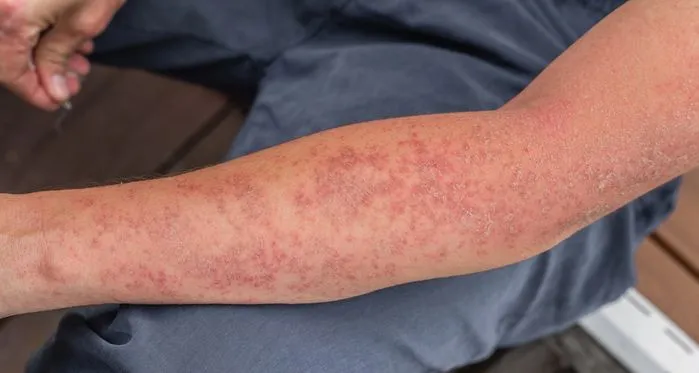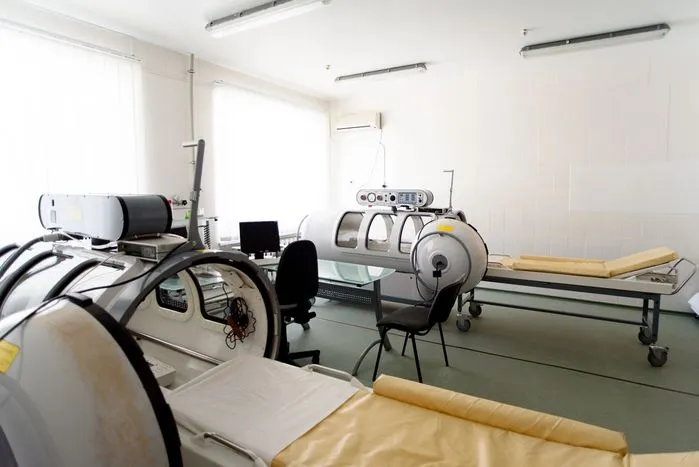At TheWoundPros.com, we’ve seen firsthand how confusing and concerning a Henoch-Schönlein Purpura diagnosis can be, especially when it appears without warning in children or adults.
While the medical literature points to immune system responses, infections, and even certain medications as common triggers, our clinical observations reveal that early inflammatory markers, recent upper respiratory events, and genetic predispositions often interact in ways that influence how it manifests and progresses.
This guide brings together evidence-based research and insights from our wound care specialists to explain the underlying causes, known risk factors, and real-world triggers in both adults and children. Our goal is to help patients, families, and providers not just understand it, but anticipate, manage, and potentially reduce flare-ups through better awareness and care planning.
Top 5 Takeaways
● It is multifactorial.
- It’s rarely caused by just one factor.
- Common contributors include immune overreactions, genetics, and environment.
● Triggers vary by age.
- Children often experience respiratory infections.
- Adults: Linked to allergens, diet changes, or weather shifts.
● Early signs matter.
- Inflammatory markers may appear before symptoms.
- Monitoring can lead to earlier intervention.
● No two cases are the same.
- Triggers differ from person to person.
- Personalized care plans are essential.
● Our clinical insight at TheWoundPros.com:
- HSP is your immune system signaling a deeper imbalance.
- Listening to those signals leads to better outcomes.
Understanding Henoch-Schönlein Purpura (HSP)
Often called a 'medical chameleon', Henoch-Schönlein Purpura (HSP) can bewilder even seasoned medical professionals. Its unpredictable progression and diverse symptom presentation make it a challenging disease. As a vasculitis type, it impacts small blood vessels, causing inflammation and bleeding in diverse areas such as skin, joints, intestines, and kidneys.
Managing symptoms is crucial to minimize their impact. These can span from rashes, joint pain, abdominal discomfort, to kidney-related issues. Rashes often surface on legs and buttocks first, not causing itchiness or pain despite their alarming appearance.
Identifying Causes
This condition is predominantly seen as an immune-mediated disorder, suggesting involvement of the body's defense mechanisms. However, what exactly sparks this unusual immune reaction remains unclear.
Different diagnostic techniques have been crucial in identifying potential causes. Laboratory tests, for instance, often uncover elevated IgA immunoglobulin levels in patients with HSP, hinting at an intense immune response.
Studies indicate potential genetic predisposition in certain individuals, but this isn't consistent across all cases. Environmental elements, such as exposure to specific drugs or allergens, could potentially facilitate HSP development, but their exact role remains ambiguous.
Triggers in Adults
Food intake has a substantial impact on triggers among adults. Specific foods, additives, or significant dietary changes might contribute to an inflammatory response, which can lead to symptom manifestation. Despite this, individual responses to dietary triggers exhibit vast variations, making it difficult to identify concrete causal foods or additives.
Exposure to certain environmental elements can also spark it in adults. Pollutants, allergens, or significant weather changes might prompt an abnormal reaction from one's immune system, thus initiating it.
Triggers in Children
It often appears spontaneous, yet certain environmental conditions can spark its onset in susceptible young ones.
Infections serve as a common trigger. Both bacterial and viral infections, especially those impacting the respiratory tract, can incite an immune response that mistakenly targets the body's cells, leading to it. Medications or vaccines may also provoke this errant immune response, sparking disease onset in some cases.
Exposure to particular allergens or chemicals can act as a trigger for some children. Cold weather associations with it imply that climatic conditions could have a role.
Risk Factors Associated With It
Genetic predisposition implies that individuals with a family history may have a heightened chance of developing the disease.
Environmental influences play a significant role in HSP's development. Exposure to specific infections, medications, or other environmental triggers may provoke an abnormal immune response, leading to blood vessel inflammation, a common symptom of the condition.
Despite the presence of these risk factors, their existence does not guarantee the development of HSP but increases the likelihood.
"At TheWoundPros.com, our experience managing complex inflammatory conditions like Henoch-Schönlein Purpura has taught us one critical lesson: HSP doesn’t follow a rulebook. While research identifies immune dysregulation, infections, and medications as key drivers, we’ve observed that real-world flare-ups often emerge from a confluence of subtle warning signs—elevated IgA levels, post-viral inflammation, and environmental shifts. Recognizing these early immune 'signals' allows us to intervene sooner, personalize care more effectively, and help patients avoid the worst complications. This condition may be rare, but with the right vigilance, it doesn’t have to be unpredictable."
Supporting Facts and Statistics
1. Mostly Affects Children
- 90% of cases occur in children under age 10.
- Annual incidence: 10–20 per 100,000 children.
- Matches what we see: most pediatric cases are spontaneous and follow no clear warning signs.
Source: publications.aap.org
2. Often Follows an Infection
- ~50% of cases follow a respiratory illness (cold, strep, etc.).
- We've observed HSP onset even after mild, unnoticed infections.
- Monitoring early inflammation can catch signs before rash or joint symptoms appear.
Source: mayoclinic.org
3. More Severe in Adults
- Adults have fewer cases but more complications.
- Kidney involvement:
- 50–80% in adults
- 20–40% in children
- 50–80% in adults
- Progression to kidney failure:
- 10–20% of adults
- ~1% of children
- 10–20% of adults
- We advise early nephrology consults in adult HSP cases.
Source: ccjm.org
Final Thoughts & Expert Perspective
Henoch-Schönlein Purpura is rarely as random as it seems. At TheWoundPros.com, we've seen firsthand how a deeper look at patient history can uncover early warning signs that are often overlooked.
What We've Observed:
- It is usually triggered by a combination of immune sensitivity, genetic predisposition, and subtle inflammation.
- Children often develop it after a viral or bacterial infection.
- Adults may experience onset due to lifestyle changes, allergens, or dietary shifts.
- No two cases are the same—each requires personalized attention.
Key Takeaways from Our Clinical Experience:
- It’s not just “caused” by one thing; it’s the result of several interacting elements.
- Early detection matters. Inflammation and immune patterns often appear before obvious symptoms.
- Real-world insight helps. Textbook causes are helpful, but patient-specific triggers are often the real culprits.
- Proactive management works. Identifying and avoiding personal triggers can significantly reduce flare-ups.
- Partnership is powerful. Patients who work closely with specialists tend to see better outcomes.
Our Unique Perspective:
At TheWoundPros.com, we don’t just treat symptoms—we aim to decode the immune system’s signals before they escalate. It isn’t just a diagnosis; it’s a conversation your body is trying to have. The better we listen, the better we care.
Frequently Asked Questions
1. What is Henoch-Schönlein Purpura (HSP)?
Henoch-Schönlein Purpura (HSP) is an inflammatory disease that affects the small blood vessels, leading to a condition known as vasculitis, and it commonly presents with a purplish rash, joint pain, abdominal discomfort, and kidney issues.
2. What causes Henoch-Schönlein Purpura in children and adults?
The exact cause of HSP is unknown, but it is believed to be triggered by an abnormal immune response, often following infections, especially upper respiratory tract infections caused by viruses or bacteria.
3. Is HSP more common in children or adults?
HSP is significantly more common in children, particularly between the ages of 3 and 15, but it can also affect adults, where it may present with more severe symptoms, especially involving the kidneys.
4. What are the common triggers of HSP in both adults and children?
Common triggers include recent infections (especially streptococcal), certain medications, insect bites, vaccinations, and in rare cases, exposure to cold weather or food allergies.
5. Can HSP be caused by medications or vaccines?
Yes, although less common, certain medications like antibiotics and vaccines can trigger an immune response that may lead to the onset of HSP in susceptible individuals.
6. How does the immune system contribute to the development of HSP?
HSP is considered an immune-mediated condition where the body’s immune system mistakenly attacks its small blood vessels, causing inflammation and bleeding into the skin and organs.
7. Are there genetic or hereditary risk factors for HSP?
While HSP is not typically inherited, some evidence suggests a genetic predisposition may exist, especially if there is a family history of autoimmune diseases or previous episodes of vasculitis.
8. Can environmental factors increase the risk of developing HSP?
Yes, exposure to infections in crowded or seasonal environments, such as during flu season or in school settings, can increase the likelihood of triggering HSP, especially in children.
9. Why do some people develop HSP after an infection while others do not?
Individual immune system differences, genetic susceptibility, and prior immune exposure may explain why only some people develop HSP following a common infection or trigger.
10. Is there a link between HSP and autoimmune diseases?
Although HSP itself is not classified as a chronic autoimmune disease, it involves autoimmune-like processes, and individuals with autoimmune conditions may be at slightly higher risk for developing it.
11. Can stress or physical trauma trigger HSP?
Emotional stress or physical trauma is not a primary cause of HSP but may contribute to flare-ups or trigger symptoms in some sensitive individuals already predisposed to the condition.
12. Are there any ways to prevent HSP from occurring?
Because the precise cause is unknown and often involves an unpredictable immune response, there is no guaranteed way to prevent HSP, but reducing infection risks and avoiding known medication triggers may help minimize the likelihood.



.webp)

.avif)